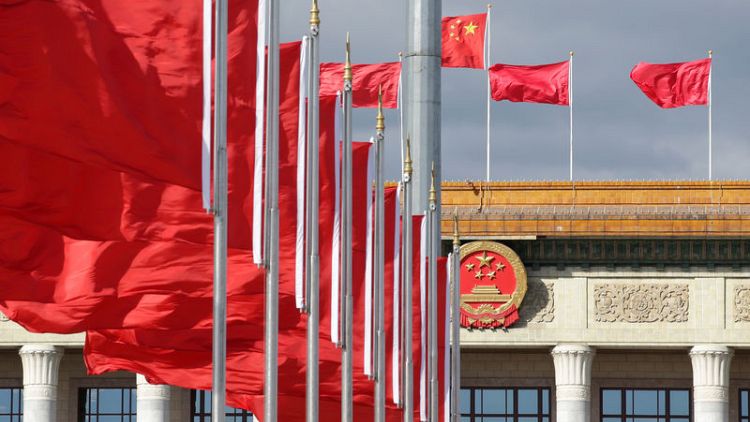By Christian Shepherd
BEIJING (Reuters) - China on Monday blocked Western diplomats from attempting to attend the trial of a well-known Chinese activist who ran a website reporting alleged rights abuses, amid U.N. concerns about his health.
Huang Qi, known as a "cyber-dissident" for his online activism, founded website 64tianwang.com, which reported extensively on the plight of petitioners hoping to claim justice for rights abuses such as forced evictions.
Since Huang's detention in 2016, rights groups, the United Nations and his mother have repeatedly raised the alarm over his health and the charges against him, amid what they say is a lack of access and information.
Huang's case on charges of leaking state secrets overseas was heard on Monday by the Mianyang Intermediate People's Court in southwestern Sichuan province, according to a Friday report by U.S. government funded Radio Free Asia.
Chinese authorities have not released any information about the trial.
The British embassy in Beijing on Monday expressed "grave concerns" over the proceedings on its official Twitter account and said a British diplomat who hoped to sit in on the hearing was rejected.
U.S. diplomats who attempted to attend were also rejected, a U.S. embassy spokesman told Reuters.
China's Foreign Ministry did not immediately respond to an emailed request for comment.
A woman who answered the phone at the Mianyang court declined to comment on the case.
Since 2012, President Xi Jinping has overseen a sweeping campaign to crush dissent, detaining hundreds of rights lawyers and activists. Dozens have been jailed.
China regularly rejects criticism of its human rights record and says that rights activists and lawyers jailed by its justice system are criminals who broke the law.
Huang has been jailed twice before, once for inciting subversion in 2001 and again in 2009 for "possessing state secrets" after he posted complaints from parents whose children died in collapsing buildings during a 2008 earthquake in Sichuan.
(Additional reporting by Michael Martina; Editing by Nick Macfie)
